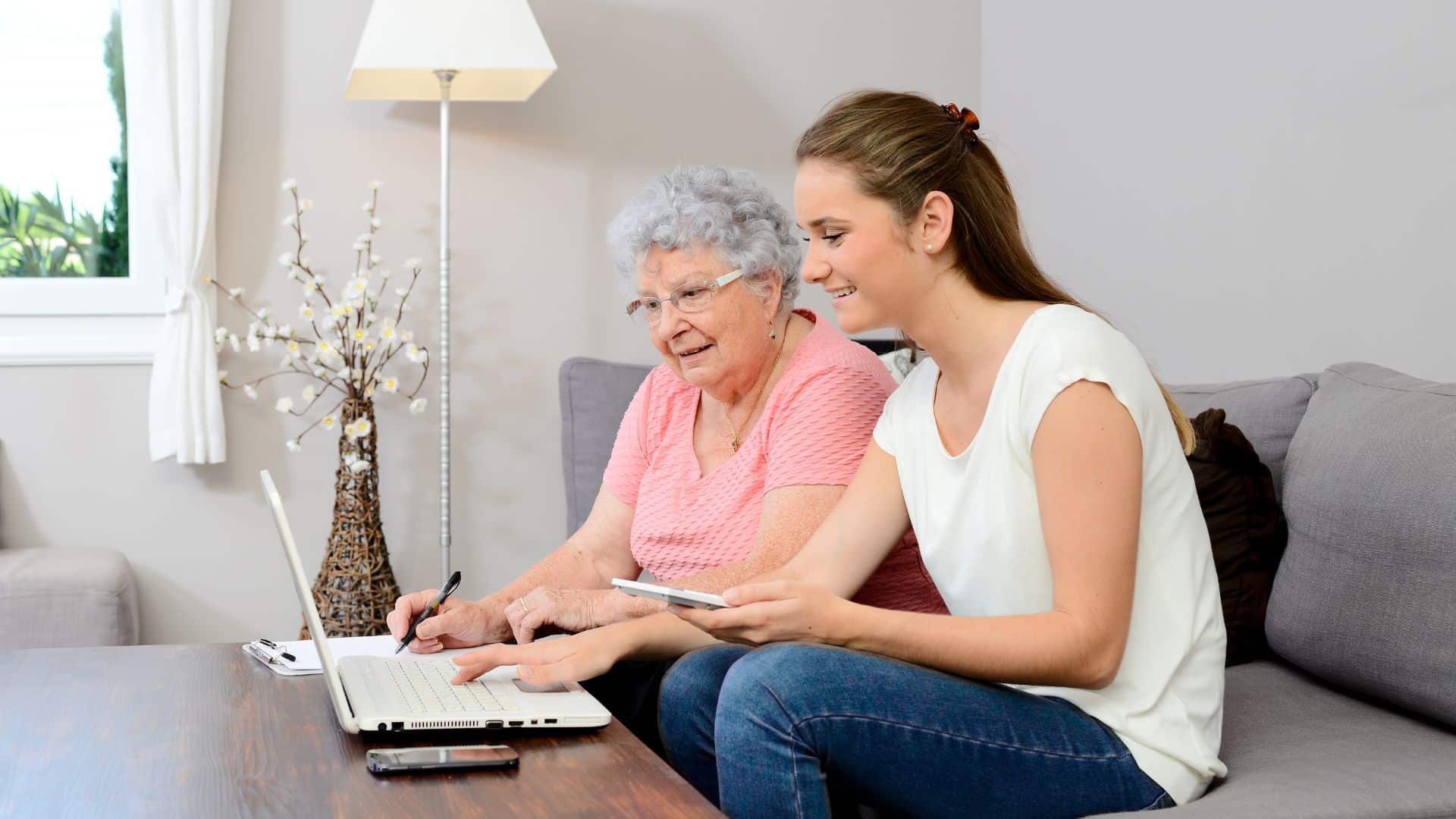Welcome to our comprehensive guide on caring for your loved ones at home through assisted living. As we age, it's natural for us to require a little extra support and assistance in maintaining our quality of life. Whether it's helping with daily tasks, managing medications, or providing companionship, the concept of assisted living has become increasingly important.
In this blog post, we will explore what assisted living entails and how you can learn the necessary skills to provide care at home. We'll also discuss who might benefit from assisted living services and delve into the many advantages it offers. If you're considering caring for your parents at home or are interested in exploring professional facilities that offer these services, you've come to the right place! So let's get started on this journey of understanding and compassion!
What is Assisted Living?
Assisted living is a type of care that provides support and assistance to individuals who may need help with daily tasks but still desire to maintain their independence. It is designed for those who are no longer able to live completely on their own, yet do not require the round-the-clock medical care provided in a nursing home.
In assisted living, residents typically have their private apartments or rooms within a larger facility. These spaces are specially equipped with safety features such as grab bars and emergency call systems to ensure the well-being of the residents. Additionally, common areas like dining rooms, activity rooms, and outdoor spaces foster social interaction among residents.
The services offered in assisted living can vary depending on individual needs. They often include assistance with activities of daily living (ADLs) such as bathing, dressing, medication management, and meal preparation. Some facilities also provide transportation services for appointments or outings.
One key aspect of assisted living is the presence of trained staff members available 24/7. These professionals offer both physical and emotional support to residents whenever needed. They play an essential role in ensuring that each resident's unique needs are met effectively.
By providing a safe and supportive environment while promoting independence, assisted living offers individuals an opportunity to continue enjoying life without the stressors associated with managing all aspects of day-to-day life alone. Whether it's helping with personal care or organizing engaging activities tailored to individual interests, these facilities strive to enhance the overall quality of life for their residents.
In our next blog section, we will delve into learning the necessary skills for providing assisted living at home so you can confidently care for your loved ones in familiar surroundings! Stay tuned!

Learn the Skills for Assisted Living at Home
Assisted living at home can be a wonderful option for those who want to ensure the well-being and comfort of their loved ones. However, caring for someone in need requires specific skills and knowledge. Learning these essential skills is crucial to provide the best possible care.
It is important to gain an understanding of basic medical procedures such as administering medication, monitoring vital signs, and managing chronic conditions. This knowledge will enable you to effectively assist your loved one with their specific healthcare needs.
Learning proper communication techniques is essential when providing assisted living at home. Effective communication involves active listening, empathy, patience, and clear expression. By honing these skills, you can create a positive environment that fosters trust and enhances caregiving relationships.
Additionally, acquiring practical caregiving skills is vital for ensuring your loved one's safety and well-being. These may include assisting with daily activities like bathing, dressing, toileting or transferring from bed to chair.
Furthermore, familiarizing yourself with local community resources can greatly support both you and your loved one in the assisted living journey. These resources may encompass support groups or organizations that offer guidance on various aspects of caregiving such as emotional support or respite care options.
In conclusion, learning the necessary skills for assisted living at home empowers caregivers to provide compassionate care while maintaining their own well-being. By gaining knowledge about medical procedures, practicing effective communication techniques, acquiring practical caregiving abilities, and utilizing community resources, you can create a nurturing environment where your loved one thrives.
Remember: Assisted living at home requires continuous learning and adaptation as each individual's needs evolve over time.
So, embrace this opportunity to grow both personally and professionally while providing exceptional care for your beloved family member!
Who Needs Assisted Living?
Who needs assisted living? It's a question that many families find themselves asking as their loved ones age and may require additional support. Assisted living is not just for those with severe medical conditions or disabilities, but also for individuals who need assistance with daily tasks and activities.
One group of people who may benefit from assisted living are seniors who are no longer able to live independently due to physical limitations or cognitive decline. These individuals may struggle with basic self-care tasks such as bathing, dressing, or preparing meals. Assisted living facilities provide personalized care plans that can help seniors maintain their independence while receiving the support they need.
Another group that can benefit from assisted living are individuals recovering from surgery or illness. After a hospital stay, some patients may require temporary assistance until they regain their strength and mobility. Assisted living offers a safe and supportive environment where these individuals can receive the necessary care and rehabilitation services.
Assisted living is also suitable for those with chronic health conditions such as diabetes or heart disease. The staff at these facilities are trained in managing medications, monitoring vital signs, and providing specialized care to ensure the well-being of residents with specific medical needs.
Additionally, family members caring for elderly loved ones at home often face challenges balancing work commitments and caregiving responsibilities. Assisted living provides an alternative solution by offering professional care in a secure setting, giving peace of mind knowing that their loved one is being well-cared for while still maintaining independence.
Anyone who requires assistance with day-to-day activities or desires social engagement can benefit from assisted living. It's about finding the right level of support tailored to each individual's unique needs so they can continue to enjoy life to the fullest extent possible.

The Benefits of Assisted Living
Assisted living offers numerous benefits for both seniors and their loved ones. One of the key advantages is that it provides a safe and supportive environment for older adults who may need help with daily activities or have medical conditions that require monitoring. Assisted living facilities are staffed with trained professionals who can provide round-the-clock care, ensuring that residents receive the assistance they need whenever necessary.
In addition to physical support, assisted living also promotes social engagement and emotional well-being. Seniors often find themselves surrounded by peers in similar life stages, allowing them to build new friendships and participate in various social activities organized within the facility. This sense of community helps combat feelings of loneliness and isolation, improving overall mental health.
Another benefit of assisted living is the convenience it offers. Daily tasks such as meal preparation, housekeeping, laundry, and medication management are taken care of by the facility staff. This allows seniors to focus on enjoying their hobbies and pursuing interests without worrying about these mundane responsibilities.
Moreover, assisted living facilities prioritize safety measures to prevent accidents or emergencies from occurring. They are equipped with features like grab bars in bathrooms, emergency call systems, security cameras, and trained personnel ready to respond quickly if needed.
Choosing an assisted living arrangement can provide peace of mind for family members who may not be able to personally attend to all aspects of their loved one's care at home. Knowing that their parent or relative is residing in a secure environment where professional assistance is readily available brings comfort and reassurance.
Overall, 'The Benefits of Assisted Living' encompass enhanced safety measures; access to ongoing care; opportunities for companionship; convenience through services provided; improved mental well-being due to social engagement; reduced stress for family caregivers concerned about providing adequate support at home.
Caring for your Parents at Home
Caring for your parents at home can be a rewarding and fulfilling experience. It allows you to provide personalized care in a familiar and comfortable environment. However, it also comes with its challenges, especially if your loved ones have specific medical or mobility needs.
When caring for your parents at home, it's important to create a safe and accessible living space. This may involve making modifications to the house such as installing grab bars in the bathroom or removing tripping hazards. Additionally, ensuring that their medication is organized and their diet is well-balanced are essential aspects of providing proper care.
It's crucial to establish open communication with your parents about their needs and preferences. Regularly checking in on their physical and emotional well-being can help identify any potential issues early on.
Seeking outside support can be beneficial when caring for elderly parents at home. This includes enlisting the help of other family members or hiring professional caregivers who can provide respite care when needed.
Remember to take care of yourself too! Caregiving can be demanding both physically and emotionally, so make sure to prioritize self-care activities that recharge you.
Caring for your parents at home requires patience, empathy, and adaptability. While it may not always be easy, the rewards of being able to spend quality time with them in their golden years are immeasurable.

Easy to follow Training for Elderly Care
Training for elderly care can be broken down into three main categories: providing medical care, providing emotional support, and helping with daily activities.
1. Providing Medical Care
2. Providing Emotional Support
Develop your skills and knowledge in support work for older people. Community Care Toolkit provides an online learning experience that helps you develop your skills and learn new ones.
Training for Caregivers for Assisted Living
Caring for elderly loved ones at home can be a challenging and overwhelming task. It requires knowledge, patience, and most importantly, the right training. Providing proper care to seniors involves understanding their unique needs and abilities.
When it comes to training for elderly care, it's important to focus on developing skills that will make caregiving easier and more effective. This includes learning about medication management, mobility assistance techniques, meal planning for special dietary needs, communication strategies with memory loss patients, and first aid procedures.
One of the best ways to acquire these skills is through specialized courses or workshops designed specifically for caregivers. These training programs provide comprehensive education on various aspects of elderly care. They cover topics like managing chronic conditions such as diabetes or Alzheimer's disease, preventing falls and injuries in seniors, providing emotional support during difficult times, creating a safe environment at home, and promoting independence while ensuring safety.
Moreover, online resources such as instructional videos and webinars are also available to help caregivers gain valuable insights into specific caregiving tasks. These resources offer step-by-step instructions on activities like bathing an older adult safely or assisting with daily living tasks like dressing or eating.
In addition to acquiring practical skills through training programs or online resources, it's crucial for caregivers to develop empathy and compassion towards their loved ones. Understanding the emotional challenges faced by elderly individuals can greatly enhance the quality of care provided.
Taking care of our aging parents or relatives is a responsibility that should not be taken lightly. By investing time in gaining the necessary knowledge and skills through easy-to-follow training programs tailored specifically for elderly care providers we can ensure our loved ones receive the best possible support in their golden years.
The Services Provided by Assisted Living Facilities
Assisted living facilities offer a range of services designed to meet the individual needs of each resident. These services are aimed at providing assistance and support to seniors who may require help with daily activities, such as bathing, dressing, medication management, and meal preparation.
One of the primary services provided by assisted living facilities is personal care assistance. This includes help with tasks like grooming, hygiene, and mobility. Trained caregivers are available round-the-clock to ensure that residents receive the care they need when they need it.
In addition to personal care assistance, many assisted living facilities also provide housekeeping and laundry services. This ensures that residents can enjoy a clean and comfortable living environment without having to worry about household chores.
Another important service offered by assisted living facilities is medication management. Staff members are trained to assist residents in taking their medications correctly and on time. They can also coordinate with healthcare providers to ensure that prescriptions are filled promptly.
Nutritious meals are an essential aspect of senior health and well-being. Assisted living facilities typically have dining rooms where residents can enjoy delicious meals served restaurant-style. Special dietary needs or preferences can be accommodated upon request.
Socialization is vital for seniors' mental and emotional well-being. Assisted living facilities often organize various social activities, including exercise classes, game nights, movie screenings, group outings, and holiday celebrations. These opportunities allow residents to make new friends while staying active and engaged in a supportive community setting.
Transportation services may also be provided by some assisted living facilities for medical appointments or other outings outside the facility.
Overall, assisted living facilities offer a comprehensive range of services tailored specifically for elderly individuals who need some level of support with daily activities but still want to maintain their independence as much as possible.

How to Choose an Assisted Living Facility
When it comes to choosing the right assisted living facility for your loved one, there are several factors to consider. First and foremost, you want to ensure that the facility meets their specific needs. This includes considering any medical conditions or disabilities they may have, as well as their preferences for activities and social interaction.
Another important factor is location. Is the facility conveniently located near family members and friends? Is it in a safe and accessible area? These are all things to take into account when making your decision.
It's also crucial to tour potential facilities in person. This will give you a chance to see firsthand what the environment is like, meet staff members, and get a feel for how residents are cared for. Don't be afraid to ask questions about staffing ratios, emergency procedures, and any other concerns you may have.
Additionally, it's beneficial to read reviews or speak with current residents and their families about their experiences at the facility. This can provide valuable insight into the quality of care provided and how satisfied residents are with their living arrangements.
Don't forget about cost. Assisted living can be expensive, so make sure you fully understand all financial obligations before making a decision.
By carefully considering these factors and conducting thorough research, you can choose an assisted living facility that best meets your loved one's needs and ensures they receive the care they deserve.
Paying for Assisted Living
When it comes to providing the best care for your loved ones, finances can be a major concern. Assisted living can come with a hefty price tag, but there are options available to help cover the costs.
One potential avenue is long-term care insurance. This type of insurance is specifically designed to assist with expenses related to assisted living and other eldercare needs. It's important to research different policies and understand their coverage limits before making a decision.
Another option is Medicaid, which provides financial assistance for low-income individuals. Each state has its own eligibility requirements and programs, so it's crucial to investigate what your loved one may qualify for.
If your loved one served in the military or their spouse did, they may be eligible for benefits through the Department of Veterans Affairs (VA). These benefits can help offset some of the costs associated with assisted living.
Additionally, many seniors choose to sell their home or use reverse mortgages as a means of funding their care. However, it's essential to carefully consider these options and consult professionals who specialize in senior finance.
It's worth noting that some facilities offer payment plans or sliding scale fees based on income. Don't hesitate to discuss financial concerns openly with prospective assisted living facilities - they may have additional resources or suggestions available.
Remember, paying for assisted living can often require creative solutions and careful planning. By exploring various avenues and seeking expert advice when necessary, you can find ways to make this transition more manageable financially while ensuring your loved ones receive the quality care they deserve.
Conclusion
Caring for your loved ones at home is a responsibility that many of us face as our parents or other family members age. Assisted living can provide the support and services needed to ensure their well-being while allowing them to maintain their independence.
By learning the skills necessary for assisted living at home, you can create a safe and comfortable environment tailored to the unique needs of your loved ones. From understanding medication management to providing emotional support, there are various aspects to consider when caring for elderly individuals.
Assisted living facilities offer a range of services designed to meet the physical, emotional, and social needs of older adults. From assistance with daily activities such as bathing and dressing, to nutritious meals and engaging social activities, these facilities provide comprehensive care in a supportive community setting.
Choosing an assisted living facility requires careful consideration. Factors such as location, cost, amenities, and staff qualifications should all be taken into account. By researching different options and visiting potential facilities in person, you can make an informed decision that best meets the needs of your loved one.
Paying for assisted living can be challenging but exploring resources such as long-term care insurance or government programs like Medicaid can help alleviate financial burden. It's important to plan ahead and understand available options so that you can provide quality care without sacrificing financial stability.
In conclusion, caring for your loved ones at home through assisted living requires dedication, knowledge, and access to appropriate resources. Whether you choose professional assistance or take on this role personally, it is crucial to prioritize their safety, comfort, and overall well-being.
Remember that each individual has unique needs; therefore patience is key throughout this journey. With proper education on elderly care techniques along with a supportive network around you - assisting aging family members will become manageable task!
Embrace this opportunity not only as a caregiver but also as a chance to strengthen bonds with those who mean so much in life! Give them love they deserve during these golden years, and they will cherish the care you provide.
Develop your skills and knowledge in support work for older people. Community Care Toolkit provides an online learning experience that helps you develop your skills and learn new ones.
